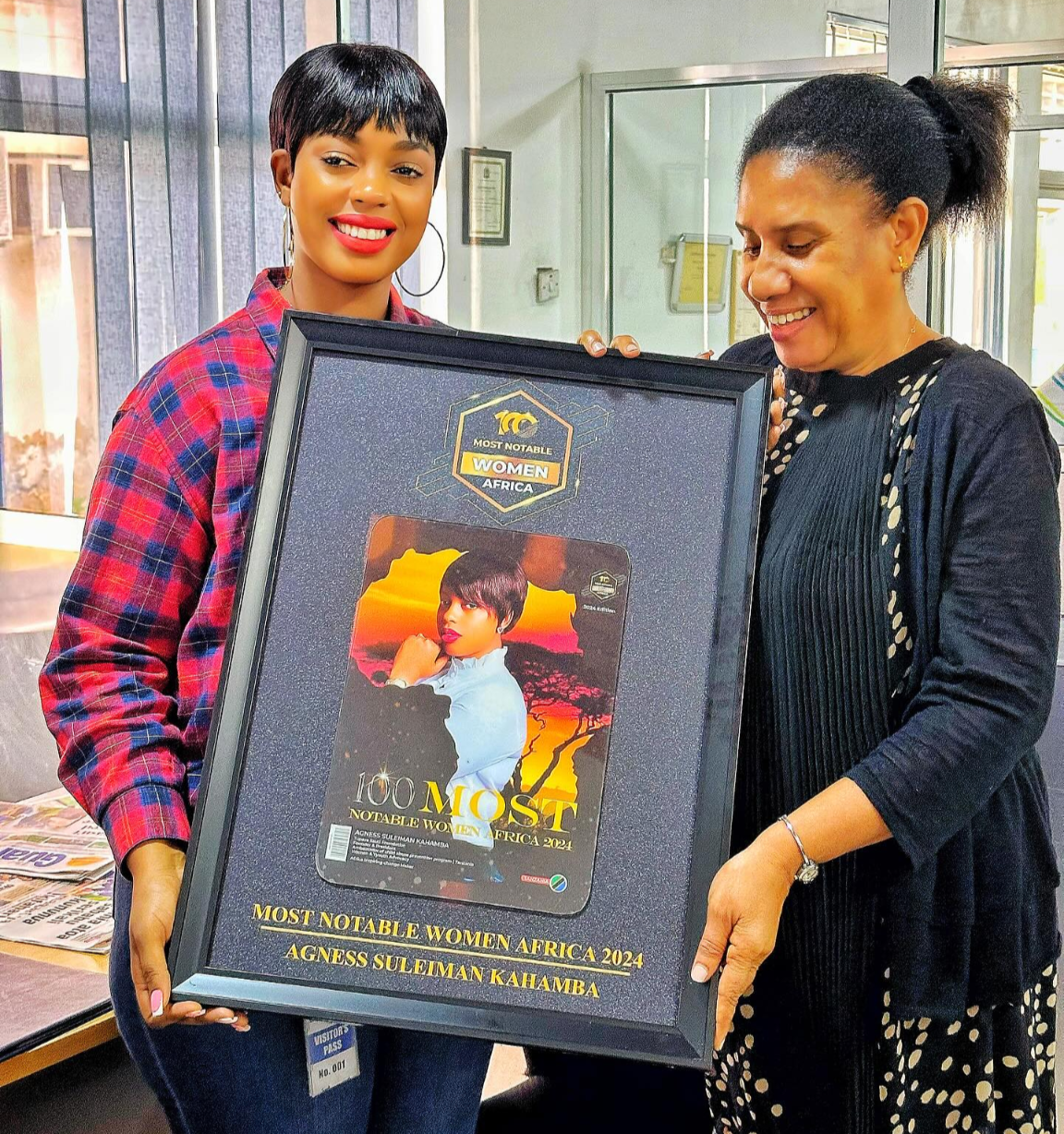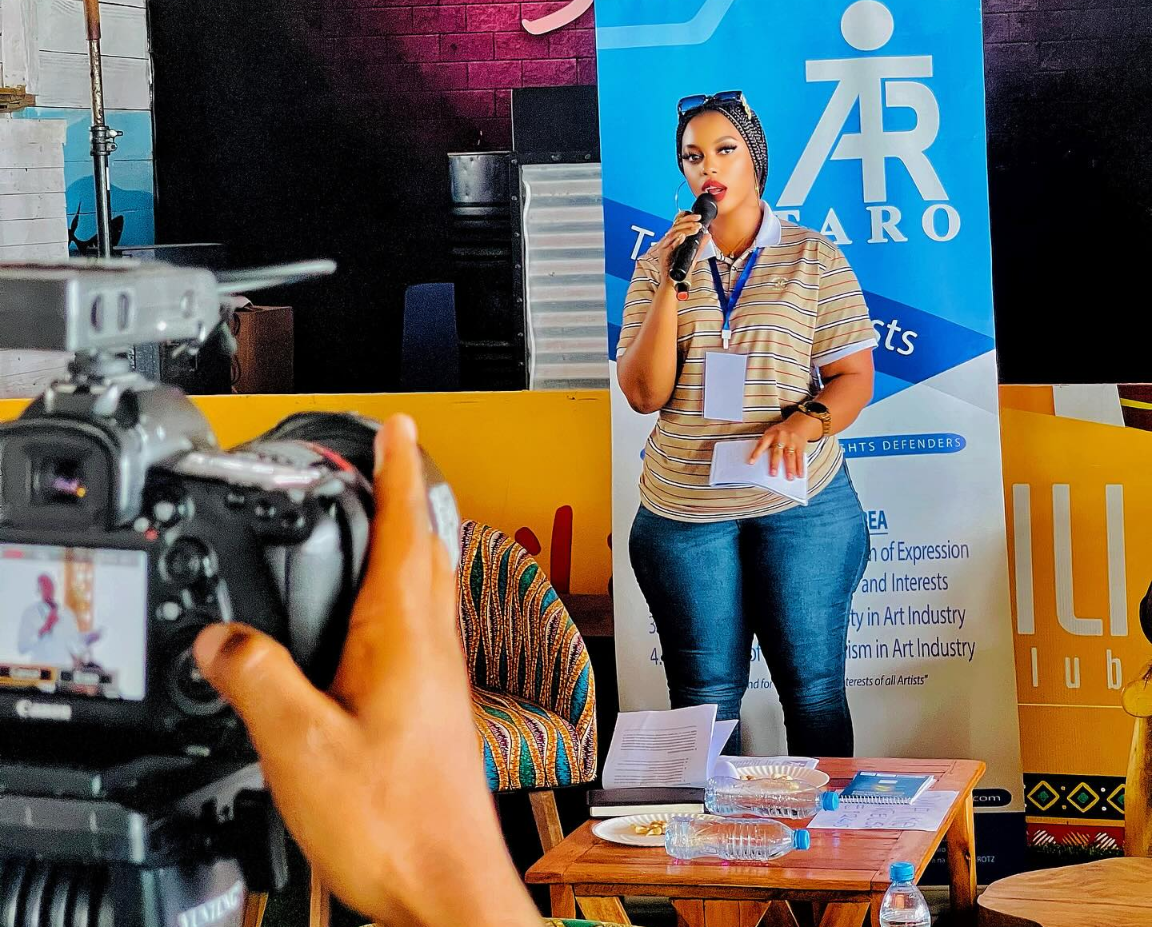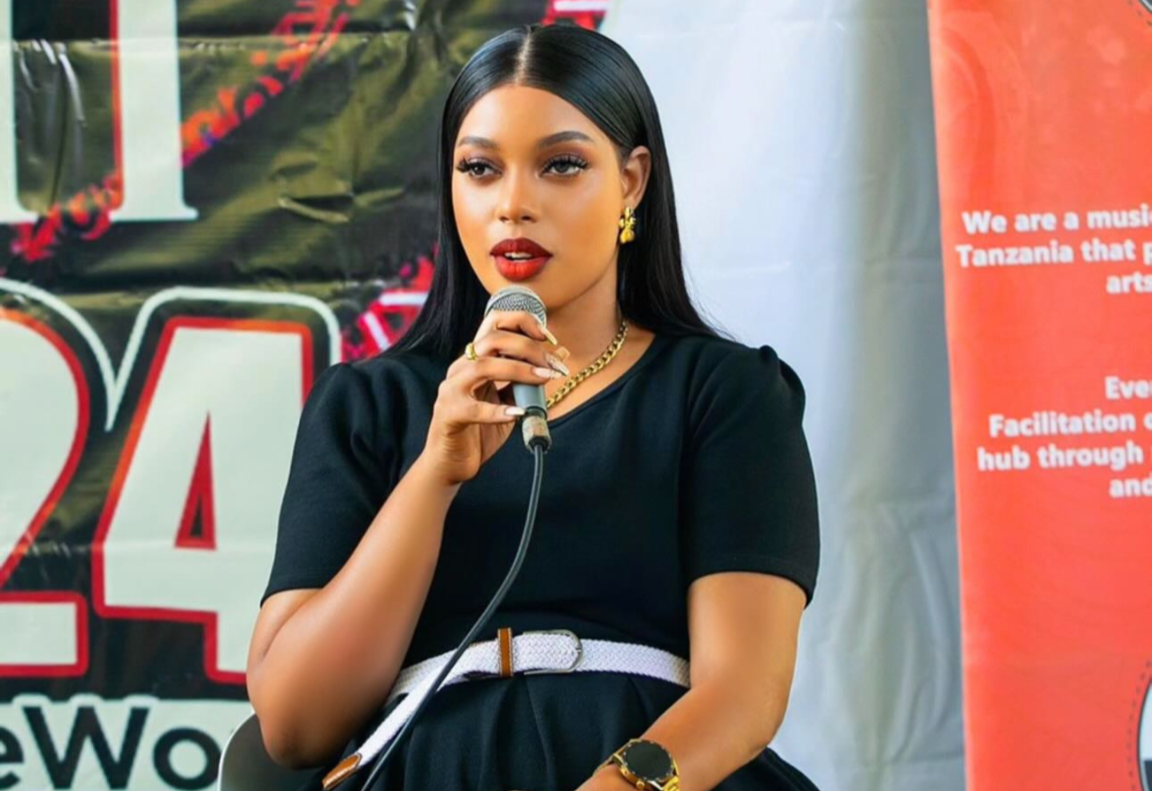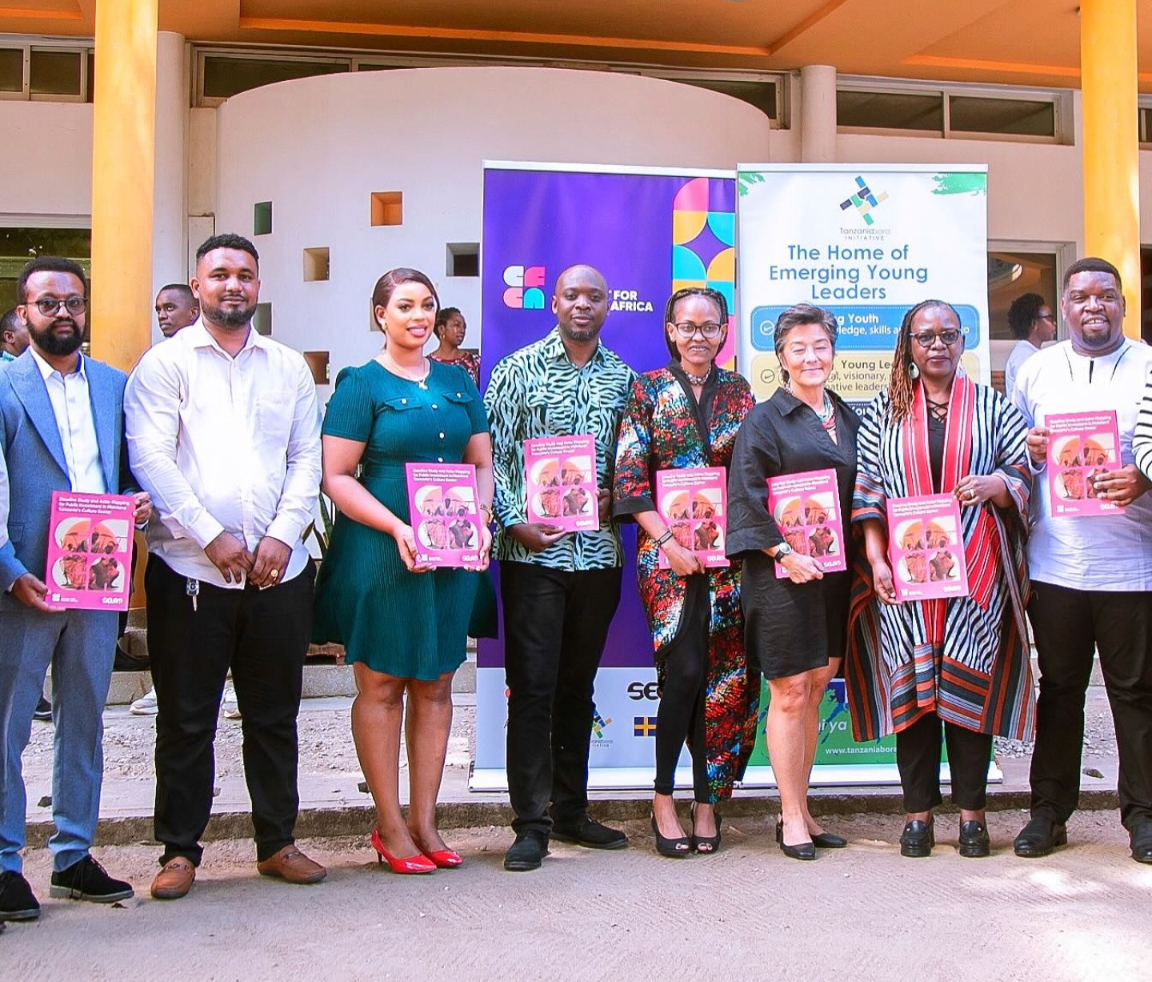The sun dips low over the rolling hills of Dar es Salaam, casting long shadows over clay roofed homes. Amid the chatter of children returning from school, one woman walks purposefully through a small village compound, stopping to greet mothers busy with chores. Her presence is magnetic, her voice firm yet gentle, and she carries not just the charm of a celebrated performer but the authority of someone who has spent more than a decade transforming lives.
Agnes Suleiman Kahamba, known in the Tanzanian entertainment scene as Aggy Baby, has become a household name for her music and acting. Yet it is her work as a social activist founder and executive director of Tupaze Sauti Foundation (TSF) that is propelling her onto the global stage. Since 2008, Kahamba has devoted herself to championing women’s rights, child protection, and youth empowerment in some of Tanzania’s most underserved communities. Her efforts have earned her numerous awards, including recognition among the 100 Most Notable Africans Awards 2024, the EAEA Awards 2024, and a growing reputation as a thought leader in Pan-African social development circles.
From Stage to Social Impact
Born in Dar es Salaam, Kahamba grew up witnessing the harsh realities faced by women and children in her community. Early encounters with child marriage, school dropouts, and systemic gender inequality left an indelible mark. Yet she also discovered an outlet in performance arts acting and music which would later serve as both a platform and a voice for social change.

Her rise in Tanzanian entertainment, particularly in Bongo Flava music, gave her public visibility and credibility. Entertainment gave me an audience. Activism gave me a purpose. Combining both gives us scale,”
she reflects. Leveraging her celebrity status, she began raising awareness on social issues, channeling attention toward causes that often went unnoticed by mainstream society.
Founding Tupaze Sauti Foundation
In 2008, Kahamba officially launched Tupaze Sauti Foundation, a non-governmental organization dedicated to combating gender-based violence, child marriage, and youth disenfranchisement. TSF began as a volunteer-driven initiative in Tunduru but has grown into a regional platform with operations spanning five districts, serving hundreds of women and children.

At first, it was extremely difficult,” Kahamba recalls. “I had no office, no formal funding, and often faced skepticism from local leaders. But the work had to be done. I couldn’t ignore the girls leaving school because they were forced into early marriage, or the mothers struggling to provide for their children.”
TSF introduced village banking schemes (VICOBA), entrepreneurship training for women, and community awareness campaigns on child protection. Within a few years, these programs began to yield measurable results: girls returned to school, women launched small businesses, and families gained a pathway out of intergenerational poverty.
Overcoming Financial Hurdles
Financing such initiatives has never been easy. Kahamba emphasizes that TSF operates on a hybrid model: local donations, international NGO grants, and partnerships with institutions such as the World Peace Ambassadors and American Management University.
Access to capital is our biggest constraint,” she says. “But we’ve learned to build trust with partners by showing measurable outcomes like the number of women accessing microloans or the reduction in child marriage cases in our pilot areas.”
Analysts note that such credibility is essential in Sub-Saharan Africa, where NGOs compete fiercely for limited grants. “Organizations like TSF are filling a critical vacuum in social protection,” says Dr. Joseph Mbwambo, a Dar es Salaam based economist. “The Tanzanian government has made strides in education and health spending, but fiscal limits mean it cannot address gender inequality alone. Civil society becomes an essential partner.”
Policy and Economic Context
Tanzania faces persistent structural challenges. According to the World Bank, youth unemployment hovers around 11%, and nearly 60% of young people work in informal sectors with low income security. UNICEF reports that one in three Tanzanian girls is married before 18, with early pregnancy a leading cause of school dropout. Women’s economic participation lags: fewer than 10% of women own formal businesses or access commercial credit, per UN Women.
It’s a numbers game as much as a social one,” Kahamba notes. “We can tell stories, but data drives funding and policy influence.”
TSF now incorporates monitoring systems to track the outcomes of its microfinance and education programs, providing evidence for potential investors and donors.
Recognition on the International Stage
Agnes Suleiman Kahamba (Aggy Baby) has received extensive recognition both locally and internationally for her work in entertainment, social activism, and leadership:
- 100 Most Notable Africans Awards 2024 Community Development category, Kigali, Rwanda.
- EAEA Awards 2024, Best Inspirational Youth Icon/Motivator & Fastest Rising Foundation of Excellence.
- Top 50 Most Industrious Women in Africa 2024, Award celebration held in Abuja, Nigeria, under the theme “The African Women in Leadership.”
- GweelevateAfrica Speaker 2025, Selected to represent Tanzania in a global debate discussing how authentic African stories of resilience and innovation can elevate the continent’s image, highlighting the role of music, film, fashion, and other creative sectors.
- A CHOICES Magazine Cover Feature, Honored as the cover personality of the London-based publication, celebrating her life journey from Miss Tanzania pageant, music, acting, fashion, to founding a social impact organization. The feature explores the challenges she overcame and her personal philosophy, inspiring youth across Africa.
- GTupazesauti_foundation Recognition Named among the Top 100 Directors in Tanzania 2023/2024 in the category “Not for Profit/MD of the Year” by GTOP100ExecutivesList. Through Tupaze Sauti Foundation, Kahamba has been recognized for her professional leadership, advocacy, and measurable impact on Tanzanian communities.
- Achievers Awards International 2025 (Nigeria) – Best Female Actress of the Year, recognizing her work in Tanzanian films such as “Panguso”, “Huba”, and “Kombolela”, Beyond her acting, the award also honored her social impact work through Tupaze Sauti Foundation (TSF), highlighting her efforts to empower women, protect children, and support youth development in underserved communities. Essentially, the recognition celebrated both her artistic talent and her commitment to social change, demonstrating how she successfully blends entertainment with meaningful activism.

These awards are more than just symbols of recognition,” Kahamba says. “They position TSF as a credible partner for international donors and allow us to expand our reach.”
Her accolades reflect a broader trend in African development: the rise of women entrepreneurs and celebrity-activists blending visibility with tangible social impact. In this space, fame and credibility are mutually reinforcing, opening doors that might otherwise remain closed.
Blending Entertainment With Advocacy
Kahamba’s dual career has been instrumental to TSF’s success. Her performances attract media attention, generate funding, and help amplify the voices of the marginalized. This approach mirrors strategies used by other African entertainers who have leveraged platforms to effect change, including Genevieve Nnaji in Nigeria and Diamond Platnumz in Tanzania.
“Entertainment gives you reach,” she says. “Activism gives you purpose. Combining the two creates scale and trust, which is essential when you’re mobilizing communities or seeking grants.”
Pan-African Influence
Looking ahead, Kahamba’s profile is moving onto the continental stage. In 2025, she will speak at the Achievers Awards International / Under 40 Entrepreneurs Conference in Abuja, Nigeria, alongside former Nigerian First Lady Patience Jonathan and Nollywood star Genevieve Nnaji.
This platform allows TSF to expand networks, attract funding, and benchmark its programs against other African NGOs addressing youth unemployment and women’s empowerment. Sub-Saharan Africa is home to 400 million people under 25, yet governments spend less than 4% of GDP on social protection, leaving NGOs like TSF to bridge the gap.

This is where the intersection of celebrity influence and NGO credibility becomes powerful,” notes Angela Mutalemwa, a policy analyst at the University of Dar es Salaam. “Agnes Suleiman is part of a new wave of African leaders who raise awareness, attract funding, and drive measurable outcomes.”
Institutional Growth and Sustainability
Kahamba is focused on the next phase: professionalizing TSF’s operations, expanding donor pipelines, and introducing technology-driven monitoring systems. “We need to show not only stories but also data,” she says. “Investors and donors want numbers and measurable impact.”
She is also exploring partnerships with private-sector companies, including banks and fintech firms, to expand microfinance initiatives and reach more rural women.
The market for social impact investment is growing,” says Mbwambo. “Foundations that can combine credibility, scalability, and visibility like TSF are highly attractive to investors seeking measurable returns on social outcomes.”
Personal Philosophy and Sacrifices
Running TSF has come at a personal cost. Kahamba spends long hours balancing her entertainment career, NGO leadership, and family commitments. Yet she remains committed to her vision.

Life is never straightforward,” she reflects. “But with determination, partnerships, and accountability, you can move mountains even from the smallest village. Every girl we help, every woman empowered, makes it worth it.”
Her personal story resonates as a blueprint for a new generation of African women leaders: leveraging talent, visibility, and strategic partnerships to create sustainable social change.
By the Numbers: Tanzania and TSF Impact
Youth unemployment: ~11% (World Bank 2024)
Informal youth employment: ~60% of working young people
Child marriage: 1 in 3 girls married before 18 (UNICEF)
Women’s access to credit/formal businesses: <10% (UN Women)
Government social protection spending: <4% of GDP
TSF reach: Active in 5 districts, serving hundreds of women and children through education, microfinance, and advocacy programs
Timeline of TSF Milestones
2008: TSF founded in Tunduru, Tanzania
2010: First village banking program launched
2012: TSF receives first international NGO grant
2018: Recognized among 16 Most Influential Young Leaders in Tanzania
2024: Wins 100 Most Notable Africans Awards and EAEA Awards
2025: Selected speaker at Achievers Awards International, Abuja
2025: Achievers Awards International (Nigeria) Best Female Actress of the Year; selected speaker at Achievers Awards International, Abuja
Conclusion
Agnes Suleiman Kahamba embodies a generation of African women transforming social entrepreneurship. Through TSF, she is not only alleviating immediate social hardships but also creating long-term pathways for women and youth to participate fully in Tanzania’s economy.
Her work demonstrates that combining celebrity influence, rigorous data-driven reporting, and grassroots engagement can create sustainable impact turning visibility into measurable social change.
Recognition is wonderful,” Kahamba concludes. “But what matters most is the lives we touch, the opportunities we create, and the future we help build.”



















